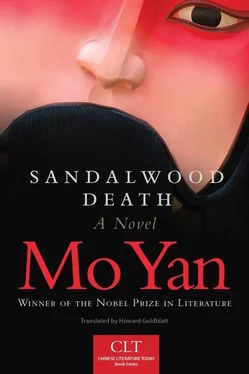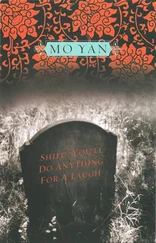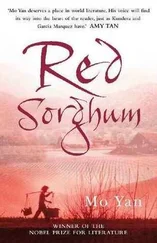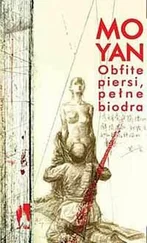As a boy, I often tagged along behind bigger kids from the village chasing will-o’-the-wisps on their way to neighboring villages to watch opera performances. Fireflies danced in the air, adding their light to the glow of the earthbound will-o’-the-wisps. In the distance, foxes barked and train whistles blew. From time to time we spotted beautiful women in red or in white sitting by the roadside crying, their sobs and wails sounding very much like Maoqiang arias. We figured they were fox fairies and gave them a wide berth, taking pains not to provoke them. I had seen so many operas, I had committed many of the arias to memory, filling in the blanks by making up my own lyrics; and when I was a bit older, I took bit parts in village stagings, playing villains. At the time, only revolutionary operas were performed, so I was either a spy or a bandit. Things loosened up a bit in the waning years of the Cultural Revolution, when folk operas were added to the revolutionary corpus. The Maoqiang opera Sandalwood Death was born. As a matter of fact, the story of Sun Bing’s resistance against the Germans had already been performed on the operatic stage by Maoqiang actors in the last years of the Qing, and some local elders could still sing some of those arias. Using my childhood talent for writing jingles to start rumors and spread gossip, I teamed up with an illiterate old villager who played the erhu, sang opera, and was a master storyteller to write a nine-act opera we called Tanxiang xing . An elementary-school teacher who had been labeled a rightist, and who loved literature, gave us a lot of help. The reason I had gone with the other kids to see the train that first time was to get some real-life experience in order to enhance the opera.
Eventually I left my hometown to take a job elsewhere, and my interest in Maoqiang decreased, owing to the pressures of work and the trials of everyday life. A dramatic form that had once stirred the hearts of Northeast Gaomi Township residents went into decline, and even though one professional drama troupe remained, they performed infrequently, and that caused the younger generation to lose interest in Maoqiang.
I went home for a visit over New Year’s in 1986, and the moment I emerged from the train station, my ears picked up the sadly moving strains of a Maoqiang aria coming from a diner on the edge of the station plaza. The sun had just burned its way into the sky, so the plaza was virtually deserted; the forlorn lyrics merged with the shrill whistle of the train as it pulled out of the station, and my heart was filled with mixed emotions. I had the feeling that these two sounds that had accompanied me as I grew up—trains and Maoqiang—were seeds planted in my heart, where they grew and matured to become the underpinnings of one of my important creations.
I began writing Sandalwood Death in 1996. After I had written some 50,000 words, all caught up with fantastic legends surrounding trains and rail lines, I set the work aside for a while. When I came back to it, the resemblance to magical realism was too obvious to miss, so I started over. Some of the best writing fell into that category, and had to be jettisoned. In the end, I decided to focus less on trains and the sound of trains, and put Maoqiang center stage, as it were, even though that may have diluted the overall richness of the novel as a whole, in favor of stronger images of the people and a purer Chinese style. It was a sacrifice I willingly made.
In the same way that Maoqiang cannot be performed in grand halls alongside Italian opera or Russian ballet, this novel of mine will likely not be a favorite of readers of Western literature, especially in highbrow circles. Just as Maoqiang is performed on open-air stages for the working masses, my novel will be appreciated only by readers who have an affinity with the common man. It may in fact be better suited to hoarse voices in a public square, surrounded by an audience of eager listeners, not readers, who participate in the tale they are hearing. With that open-air audience in mind, I have taken pains to fill the work with rhymes and dramatic narration, all in the service of a smooth, easy to understand, overblown, resplendent narrative. Popular spoken and sung dialogues are the progenitors of the Chinese novel. Nowadays, when what was once mere popular entertainment has become a refined literary offering suitable for grand temples, at a time when borrowings from Western literary trends have all but brought an end to our popular traditions, Sandalwood Death may be out of keeping with the times, and might be thought of as a step backward in my writing career.
Glossary of Untranslated Terms
The following terms have been left untranslated in the text (most can be intuited from the context):
dan 旦: a female role in Chinese opera
dieh 爹: dad (father), especially popular in northern China
gandieh 干爹: a benefactor, surrogate father, “sugar daddy”
ganerzi 干儿子: the “son” of a gandieh
ganniang 干娘: a surrogate mother
gongdieh 公爹: father-in-law
jin 斤: a traditional unit of weight with sixteen liang 两
kang 炕: a brick sleeping platform, often heated by a fire beneath
laotaiye 老太爷: a respectful term of address for a man of advanced age or high status
laoye 老爷: a more common form of laotaiye
niang 娘: mom (mother), especially popular in northern China
qinjia 亲家: related as in-laws; the parent(s) of a married couple
shaoye 少爷: a young “laoye”
sheng 生: a male role in Chinese opera
shifu 师傅: a teacher, master of a trade
yamen 衙门: an official government office and residence in dynastic China
yayi 衙役: yamen clerks, runners, minor functionaries
yuanwailang 员外郎: an official who has retired to his native home; an official title
zhuangyuan 状元: the top scholar in the Imperial Examination; the best in a field
CHINESE LITERATURE TODAY BOOK SERIES
Series Editor
Jonathan Stalling
Advisory Board
Paul B. Bell Jr., University of Oklahoma
Cao Shunqing, Sichuan University
Chen Xiaoming, Beijing University
Cheng Guangwei, Renmin University
Robert Con Davis-Undiano, World Literature Today
Ge Fei, Qinghua University
Peter Gries, University of Oklahoma
Howard Goldblatt, translator
Huang Yibing, Connecticut College
Huang Yunte, University of California, Santa Barbara
Haiyan Lee, Stanford University
Li Jingze, People’s Literature Magazine
Liu Hongtao, Beijing Normal University
Christopher Lupke, Washington State University
Meng Fanhua, Shenyang Normal University
Haun Saussy, Yale University
Ronald Schleifer, University of Oklahoma
Daniel Simon, World Literature Today
Michelle Yeh, University of California, Davis
Wai-lim Yip, University of California, San Diego
Zhang Jian, Beijing Normal University
Zhang Ning, Beijing Normal University
Zhang Qinghua, Beijing Normal University

2800 Venture Drive
Norman, Oklahoma 73069
www.oupress.com
This book is published with the generous assistance of China’s National Office for Teaching Chinese as a Foreign Language, Beijing Normal University’s College of Chinese Language and Literature, the University of Oklahoma’s College of Arts and Sciences, and World Literature Today magazine.
The translator gratefully acknowledges the John Simon Guggenheim Memorial Foundation for its generous support.
Читать дальше













